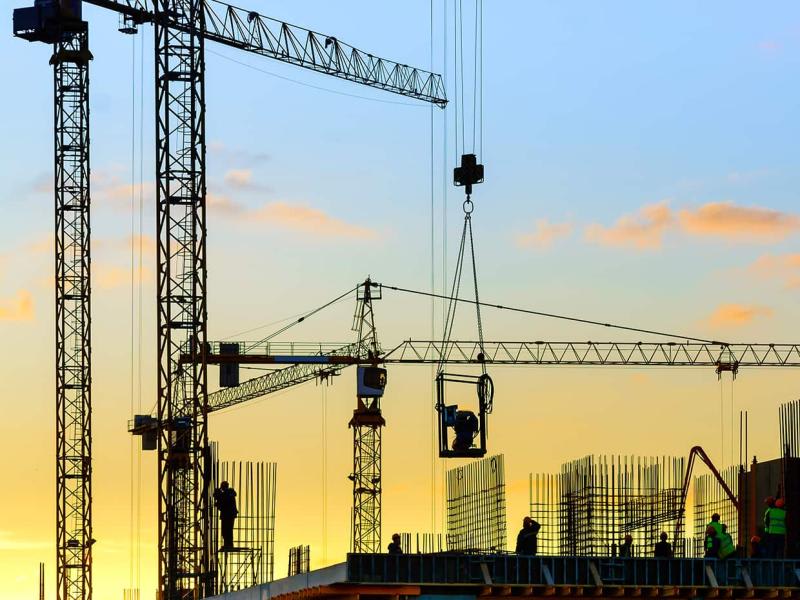Thinking about making changes to your family home, like subdividing, developing, or even knocking it down to build a new one?
It's important to know how these changes can affect your taxes. Let's break it down in simple terms.
The main residence exemption helps you avoid paying tax on the profit from selling your home. But this exemption isn't always straightforward, especially when you're making big changes to your property.
Key points:
- The exemption applies to the profit from selling a home that was your main residence for all or part of the time you owned it.
- If you're developing land that was your main residence, the exemption might not apply.
- Activities that generate ordinary income, like profit-making schemes, aren't covered by the main residence exemption.
Understanding the difference between the contract date and the settlement date is crucial for tax purposes. For example, if you signed a contract to sell your property on 1 June 2024, but the settlement occurred on 1 August 2024, the contract date is used for capital gains tax (CGT) purposes.
Tax tip:
- For profit-making schemes, income is recognised at settlement. This is different from CGT purposes.
- For CGT events, the contract date determines when the capital gain is taxed.
- The 50% CGT discount applies if you owned the property for at least 12 months before selling, based on the contract date.
Many people think they can sell a subdivided part of their backyard tax-free. However, the main residence exemption only applies if the sale includes a dwelling.
Important considerations:
- Selling vacant land doesn't usually qualify for the main residence exemption.
- If the subdivision is part of a profit-making scheme, it might be taxed as regular income.
- Special rules apply if the property is split into two or more blocks. A CGT event does not happen at the time of splitting the block, but there are requirements to value the property and apportion the costs of purchase and subdivision between the blocks created.
If you build a new house on a subdivided part of your land and then sell it, the tax office might see this as a profit-making scheme, even if it's your first time doing it.
Key points:
- The main residence exemption won't apply unless you live in the new house.
- Building a house to sell is considered a business activity for GST purposes, making the sale a taxable supply.
If you move into a newly built house on subdivided land and sell your original house, the tax implications can vary.
Tax tip:
- You might be able to claim a full main residence exemption on the original house.
- The new house won't qualify for a full exemption if you sell it later, but a partial exemption might apply . For this to apply, there are additional conditions relating to time limits of owning both dwellings at the same time that you need to meet.
If you knock down your main residence and build a new one, the exemption only applies to the new house.
Important points:
- The exemption doesn't automatically transfer from the old house to the new one.
- The exemption applies to the new house from the time it becomes your main residence.
This rule lets you treat a newly built house as your main residence for up to four years before you actually move in, potentially extending the main residence exemption.
If you build a new house to replace a demolished one and move in, you can use the 'four-year construction rule' to treat it as your main residence for up to four years before moving in.
Conditions:
- The old house must have been your main residence.
- You make a choice to treat the new dwelling (and land) as your main residence from the time you last occupied the old dwelling.
- The new house must become your main residence within four years of demolishing the old one.
- The new house must remain your main residence for at least three months.
Example: Demolishing and rebuilding
Scenario: Gemma bought a house in 2012 and lived there until 2019. She then demolished it and built a new house, moving in by 2022. She sold the new house in 2024. Gemma can avoid paying tax on the profit from selling the new house.
Outcome:
- Gemma can avoid paying tax on the profit from selling the new house.
- The exemption applies from when she last lived in the old house until she moved into the new one if she uses the four-year construction rule.
- If Gemma does not have another main residence between 2019 and 2022, she may be able to claim a full exemption from 2012.
If you demolish your home to build new houses to sell, you might lose the tax exemption completely if you don't live in one of the new houses. If you do live in one of the houses, you could claim a partial exemption on the house you live in. The other houses you build to sell will be subject to CGT, and the profits on sales may be taxed as ordinary income.
Key points:
- Building houses to sell is seen as a business activity, so you'll pay tax on the profit. This is different from, and in addition to any capital gain that may arise.
- You'll also need to pay GST on the sale.
One way to utilise the main residence tax exemption is to transfer your home to a related entity, such as a family trust before you start redeveloping. This can help protect your assets and make sure you get the maximum tax benefits by crystallising the capital gain at time of transfer. Consider other State taxes, such as Transfer Duty, before doing this.
Special considerations for spouses
When spouses own separate homes, special rules apply to make sure the main residence exemption doesn't fully apply to both properties at the same time.
Planning tip:
- Carefully consider which home to nominate as your main residence to maximise the exemption and reduce CGT exposure.
When subdividing or developing your property, it's important to keep detailed records of all transactions and expenses. This includes costs related to the subdivision, construction, and sale of the property. Proper documentation can help you accurately calculate your tax obligations and ensure you claim all eligible deductions.
Also, be aware of local council regulations and zoning laws that may affect your development plans. Compliance with these regulations is crucial to avoid potential legal issues and additional costs.
If you plan to rent out a newly built dwelling before selling it, this can further complicate the tax situation. Renting out the property may affect your eligibility for the main residence exemption and could introduce additional tax obligations, such as declaring rental income and claiming related expenses.
FOR MORE INFORMATION
If you have any questions or need personalised advice on the tax consequences of subdividing, developing, or rebuilding your family home, feel free to contact us at RSM. We're here to help you navigate these complexities and make informed decisions.





